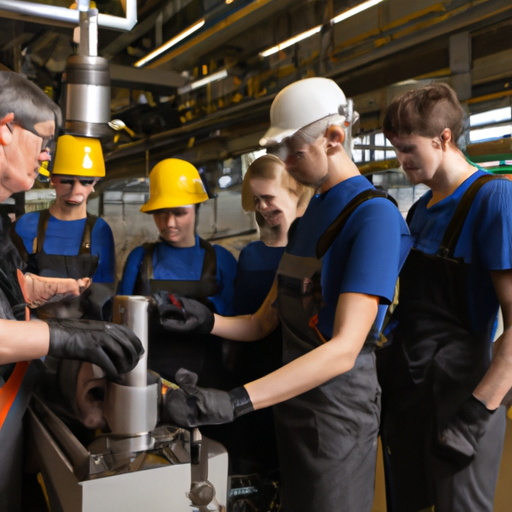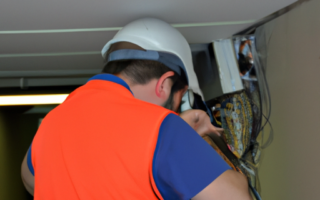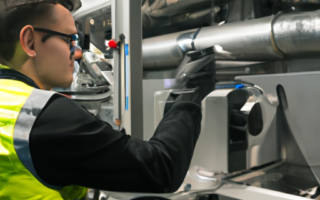The Significance of Routine Inspections in Upholding Safety Standards
Regular inspections play a crucial role in upholding safety standards and ensuring compliance in various industries. These routine examinations are essential for identifying and addressing potential hazards or non-compliance issues before they escalate into dangerous situations. Inspections are conducted to assess the condition of equipment, machinery, structures, and the overall working environment to maintain a safe and healthy workspace for employees.
The importance of routine inspections cannot be overstated. First and foremost, they help prevent accidents and injuries by identifying any potential risks or deficiencies. By identifying these hazards early on, appropriate measures can be taken to mitigate or eliminate them, reducing the likelihood of accidents or injuries occurring in the future.
Furthermore, regular inspections ensure that all safety protocols and regulations are being followed. They provide an opportunity to assess compliance with industry standards and government regulations, ensuring that the organization is meeting all legal requirements. This helps maintain a positive reputation for the company, as well as avoiding potential fines or penalties for non-compliance.
Inspections also contribute to the overall efficiency and productivity of an organization. By identifying and addressing any issues that may hinder the smooth operation of equipment or processes, inspections help minimize downtime and maximize productivity. Regular maintenance and repairs can be scheduled based on the findings of inspections, preventing unexpected breakdowns or interruptions in the workflow.
Additionally, regular inspections foster a culture of safety within an organization. When employees observe that inspections are being conducted regularly and seriously, they become more aware of potential risks and learn to prioritize safety in their daily activities. This leads to a safer work environment overall, reducing the likelihood of accidents and injuries.
In conclusion, regular inspections are of utmost importance in ensuring safety and compliance. By identifying hazards, ensuring compliance with regulations, improving efficiency, and fostering a culture of safety, routine inspections contribute significantly to the overall well-being of employees and the success of an organization. Implementing comprehensive and regular inspection procedures should be a priority for all industries concerned with maintaining high safety standards and compliance.
Ensuring Compliance and Safety through Regular Inspections
Ensuring compliance and safety in any industry is of utmost importance. One of the key methods to achieve this is through regular inspections. These inspections play a crucial role in identifying potential hazards, assessing compliance with regulations, and implementing necessary corrective actions.
The importance of regular inspections cannot be overstated. They serve as a proactive measure to prevent accidents, injuries, and other untoward incidents. Whether it is the manufacturing sector, construction industry, healthcare facilities, or any other field, regular inspections help maintain a safe and compliant working environment.
Regular inspections help in identifying any non-compliance with safety regulations, protocols, or best practices. By conducting inspections at regular intervals, organizations can identify any gaps or deficiencies in their safety programs and take appropriate measures to rectify them. This not only ensures compliance but also helps prevent potential penalties, legal issues, and reputational damage.
Inspections also contribute to the overall efficiency and productivity of an organization. By identifying and addressing safety concerns early on, inspections help prevent disruptions that may arise due to accidents, equipment failures, or non-compliance issues. This, in turn, leads to smoother operations and an increased focus on productivity.
In addition to regulatory compliance, inspections also help organizations adhere to industry standards and best practices. By benchmarking their operations against established guidelines, organizations can continuously improve their safety measures and stay ahead of the curve. Regular inspections provide valuable feedback on the effectiveness of existing safety protocols and highlight areas that need improvement.
It is important to note that inspections should not be seen as a one-time task but as an ongoing process. Regularity in conducting inspections ensures that safety and compliance remain a priority throughout all levels of an organization. This includes not only physical inspections but also comprehensive documentation of inspection findings, ensuring that corrective actions are taken in a timely manner.
In conclusion, regular inspections are vital in ensuring safety and compliance in any industry. They help identify potential hazards, ensure adherence to regulations and best practices, and contribute to overall organizational efficiency. By incorporating regular inspections as a cornerstone of their operations, organizations can create a culture of safety, minimize risks, and ensure a secure working environment for all.



